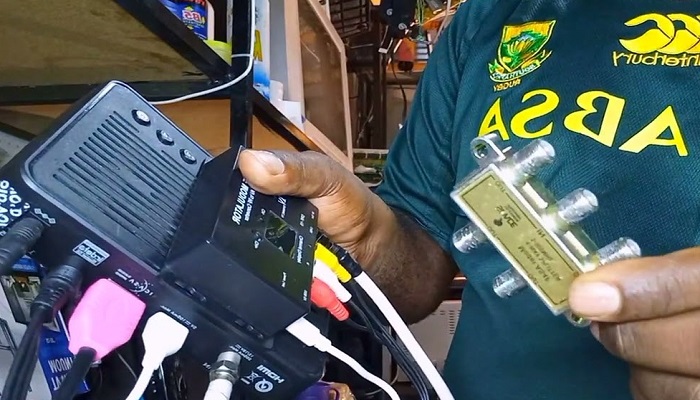If you are a DStv subscriber who wants to use a TV decoder across multiple televisions, then this article is for you.
In this article, I will show you how to connect DStv to Multiple Televisions without any stress.
Connecting DStv to multiple TVs can provide entertainment throughout your home without the need for individual decoders.
Using DStv to multiple televisions allows you to achieve this convenience without the hassle of separate decoders.
By distributing the signal efficiently, you can create a seamless and enjoyable viewing experience for everyone in your household.
In this guide, I will walk you through the step-by-step process of connecting DStv to multiple televisions, ensuring you get the most out of your subscription.
Benefits of Connecting DStv to Multiple Televisions
- Cost-Effective: Connecting multiple TVs to a single decoder eliminates the need for additional subscriptions or decoders.
- Convenience: Enjoy your favorite content from different rooms without the hassle of moving decoders.
- Entertainment Flexibility: Family members can watch different shows simultaneously, catering to diverse preferences.
What You Need To Connect DStv to Multiple Televisions
Before you start the process, gather the following equipment:
- DStv decoder
- RF modulator
- Coaxial cables
- Splitters
- Television sets
Understanding RF Distribution
RF distribution involves transmitting audio and video signals through coaxial cables to multiple televisions.
The RF modulator converts the AV signals from the DStv decoder into a format that can be transmitted over these cables.
Splitters help divide and distribute the signal to different TVs.
Step-by-Step Connecting DStv to Multiple TVs
1. Assessing Your Setup
Begin by assessing your home’s layout and the desired TV locations.
Plan the routing of cables to ensure efficient signal distribution.
2. Choosing the Right RF Modulator
Select an RF modulator that is compatible with your DStv decoder and televisions.
Consider factors like signal quality and connectivity options.
3. Connecting the RF Modulator
Connect the RF modulator to the DStv decoder using AV cables.
Ensure all connections are secure.
4. Distributing the Signal
Use coaxial cables and splitters to distribute the modulated signal to various TVs. Place splitters strategically to avoid signal loss.
5. Tuning the Televisions
On each TV, perform a channel scan to tune and save the channels being transmitted through the RF modulator.
Tips for Optimal Performance
- Use High-Quality Cabling: Invest in good-quality coaxial cables to minimize signal degradation and ensure a clear picture on all TVs.
- Label Your Cables: Labeling cables will help you identify connections and troubleshoot issues more efficiently in the future.
- Proper Ventilation for Equipment: Ensure that the DStv decoder, RF modulator, and other equipment have proper ventilation to prevent overheating.
- Regular Maintenance: Perform periodic checks on connections and cables to maintain optimal signal distribution.
Troubleshooting Common Issues
1. Poor Signal Quality
If you encounter poor signal quality, check for loose connections or damaged cables. Replace any faulty components.
2. No Signal on Some TVs
Inspect splitters and connections. Ensure that all TVs are properly tuned to the correct channels.
3. Interference and Disturbance
Keep electronic devices that might cause interference away from the RF distribution setup.
Exploring Other Multi-TV Setup Options
Option 1: DStv XtraView
Consider DStv’s official XtraView option, which allows you to connect two decoders to multiple TVs with enhanced features.
Option 2: Streaming Devices
Explore using streaming devices that can deliver DStv content to various televisions through your home Wi-Fi network.
Advantages of Connecting DStv to Multiple Televisions
- Cost-effective compared to multiple decoders
- Consistent viewing experience across TVs
- Reduced clutter and cabling
Conclusion on Connecting DStv to Multiple TV
Connecting DStv to multiple televisions opens up a world of entertainment possibilities.
By following the steps outlined in this guide, you can enjoy seamless TV viewing in different rooms of your home.
RELATED ARTICLE


